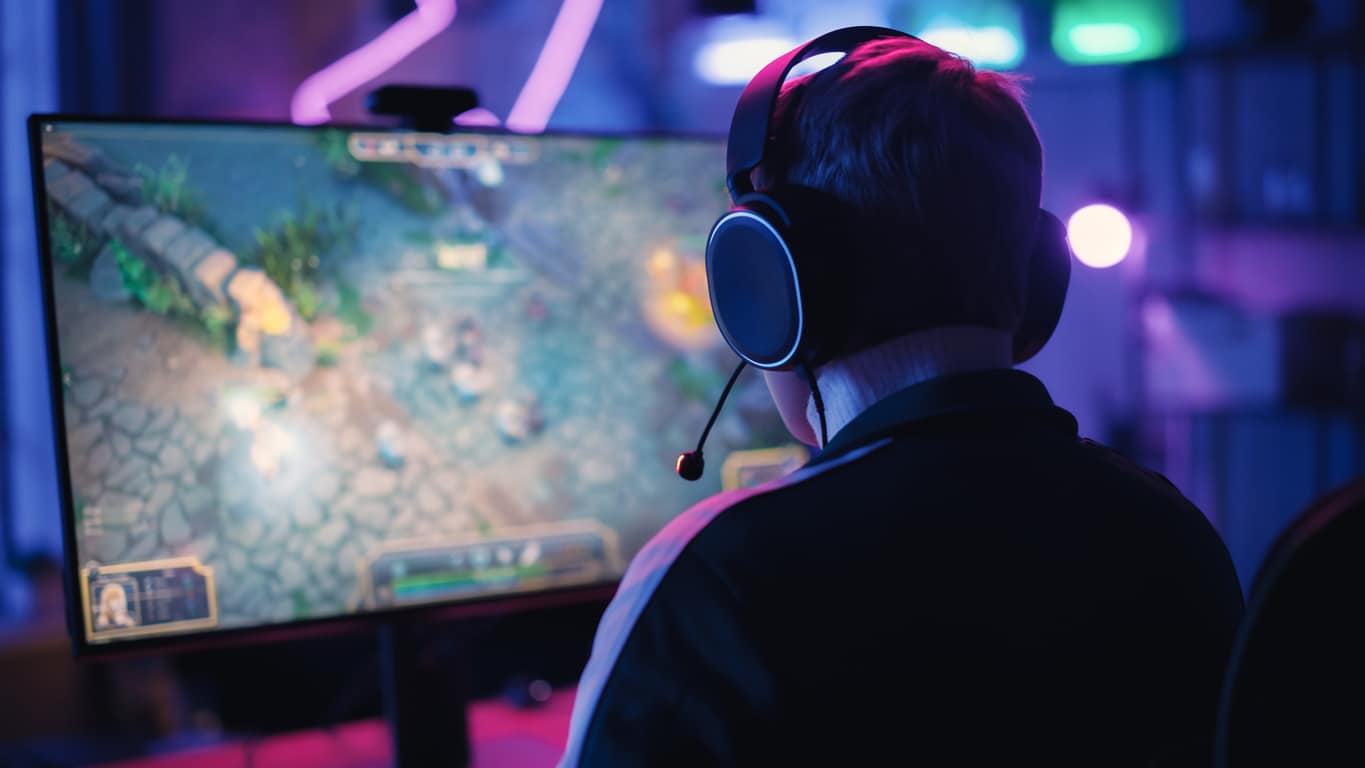According to the latest data from gaming venture capital fund Konvoy Ventures, the gaming industry is forecast to close out 2024 with a more than $188 billion valuation. Looking ahead, Konvoy anticipates the sector to grow into an estimated $223 billion market by 2029.
As with other tech-centric industries, however, VC and private equity funding data for gaming over the past quarter show a mixed-bag for businesses as inflation, politics and market uncertainty have isolated a lot of investment among a few blockbuster players—to say nothing of a “gold rush” for AI investment.
For instance, the total number of VC or PE deals for the gaming sector are down 14 percent in Q3 2024 vs. Q2, with just 92 deals tracked by Konvoy over the past quarter.
In a similar vein to OpenAI’s recent massive funding round having an inflated impact on the overall VC market last quarter, the total amount of private funding for games actually jumped in Q3 despite a drop in overall activity.
The 15 percent quarter-over-quarter rally is thanks in large part to Disney’s $1.5 billion investment in Epic games, for instance, which has incrementally (and almost single-handedly) boosted private funding totals for all three quarters of 2024 compared to 2023.
That said, growth-stage funding (ie. Series B-D) for games businesses punched higher in Q3, with Konvoy tracking $262 million over the period—a steep jump from the $159 million quarterly average tracked throughout 2023.
Early stage funding, however, has plummeted to the lowest point for the gaming sector since Q1 2020, with just 77 deals tracked in Q4. Compare this to the 280 funding deals tracked for early-stage gaming companies in Q1 2022, and it’s easy to see that investors have reserved funding for more “sure things”—both more mature gaming businesses, as well as those rooted in AI.
“The gaming industry continues to command and demand people’s time, proving its resilience. However, while the volume of AI-related gaming deals have grown, traditional content studios are facing compression in VC funding. Content alone doesn’t seem to be a strong fit for venture capital at this stage,” Konvoy’s managing partner Jason Chapman said in a statement.
Artificial intelligence in gaming leads funding for 2024
As with other sectors, gaming businesses that embraced (or even reference) AI are seeing a boost in investor interest compared to non-AI ventures in the field.
In Q3, 22 percent of funding ($133 million) went to AI gaming businesses specifically, which is up 10 percent and roughly $52 million from the funding totals tracked for AI gaming businesses in Q2. As with OpenAI and Epic, a few major fundraises lifted the totals for the entire industry, with Volley closing a $55 million round in Q3, alongside Series Entertainment’s $28 million Series A round.
None of this is terribly surprising if you’ve been keeping tabs on investment totals for other sectors, where AI has been bucking investment trends for much of the past two years.
Taking the recent OpenAI valuation a proof-in-action of how hot the AI market has become, The Associated Press reports that Open AI’s latest funding round is estimated to be the single-largest investment tracked in 17 years that wasn’t led by a single wealthy company.
Tapping into non-equity funding to drive gaming innovation
As with almost every business sector, a lot of funding in the gaming industry has been more-or-less paused as the US elections play out, inflation cools, and geopolitics continues to paint market uncertainty that won’t likely be resolved until after November.
That doesn’t mean there aren’t opportunities for gaming businesses to continue driving innovation and extending their runways while VC and private equity opportunities are few.
Programs like the Scientific Research & Experimental Development (SR&ED) tax credits in Canada are actually an incredibly valuable means for businesses to stretch their investment into R&D and innovation further, recouping a share of the costs that teams are already making into designing innovative products.
SR&ED is just one of the many tax credits or government funding channels on offer at both the federal and provincial levels in Canada, while stateside, there are similar programs on offer nationwide that teams are wise to tap into.
To learn more about non-equity funding and Boast’s proven strategy for helping gaming companies maximize their innovation, talk to an expert today.
Gaming Industry Investments Q3 2024 FAQ
- What are the current trends in gaming industry investments for 2024? According to Konvoy Ventures, the gaming industry is expected to reach a $188 billion valuation by the end of 2024, with projections of $223 billion by 2029. However, Q3 2024 saw a 14% decrease in the number of VC and PE deals compared to Q2, with only 92 deals tracked. Despite this, total funding increased by 15% quarter-over-quarter, largely due to major investments like Disney’s $1.5 billion in Epic Games.
- How is AI impacting investment in the gaming sector? AI-focused gaming businesses are seeing increased investor interest. In Q3 2024, 22% of funding ($133 million) went to AI gaming businesses, up from 10% in Q2. Notable AI gaming investments include Volley’s $55 million round and Series Entertainment’s $28 million Series A round. This trend mirrors the broader tech industry’s focus on AI investments.
- What challenges are early-stage gaming companies facing in terms of funding? Early-stage funding for gaming companies has dropped to its lowest point since Q1 2020, with only 77 deals tracked in Q4 2024. This is a significant decrease from the 280 funding deals in Q1 2022, indicating that investors are favoring more established companies and AI-focused ventures over traditional content studios.
- How does the current gaming investment landscape compare to previous years? While growth-stage funding (Series B-D) for gaming businesses increased to $262 million in Q3 2024, up from the $159 million quarterly average in 2023, early-stage funding has significantly decreased. The overall number of deals is down, but total funding amounts have increased due to large investments in established companies and AI-focused ventures.
- What alternative funding options are available for gaming companies facing investment challenges? Gaming companies can explore non-equity funding options such as the Scientific Research & Experimental Development (SR&ED) tax credits in Canada. These programs allow businesses to recoup a portion of their R&D costs, helping to extend their runway and continue innovation while traditional VC and PE opportunities are limited. Similar programs are available in the United States at both federal and state levels.





